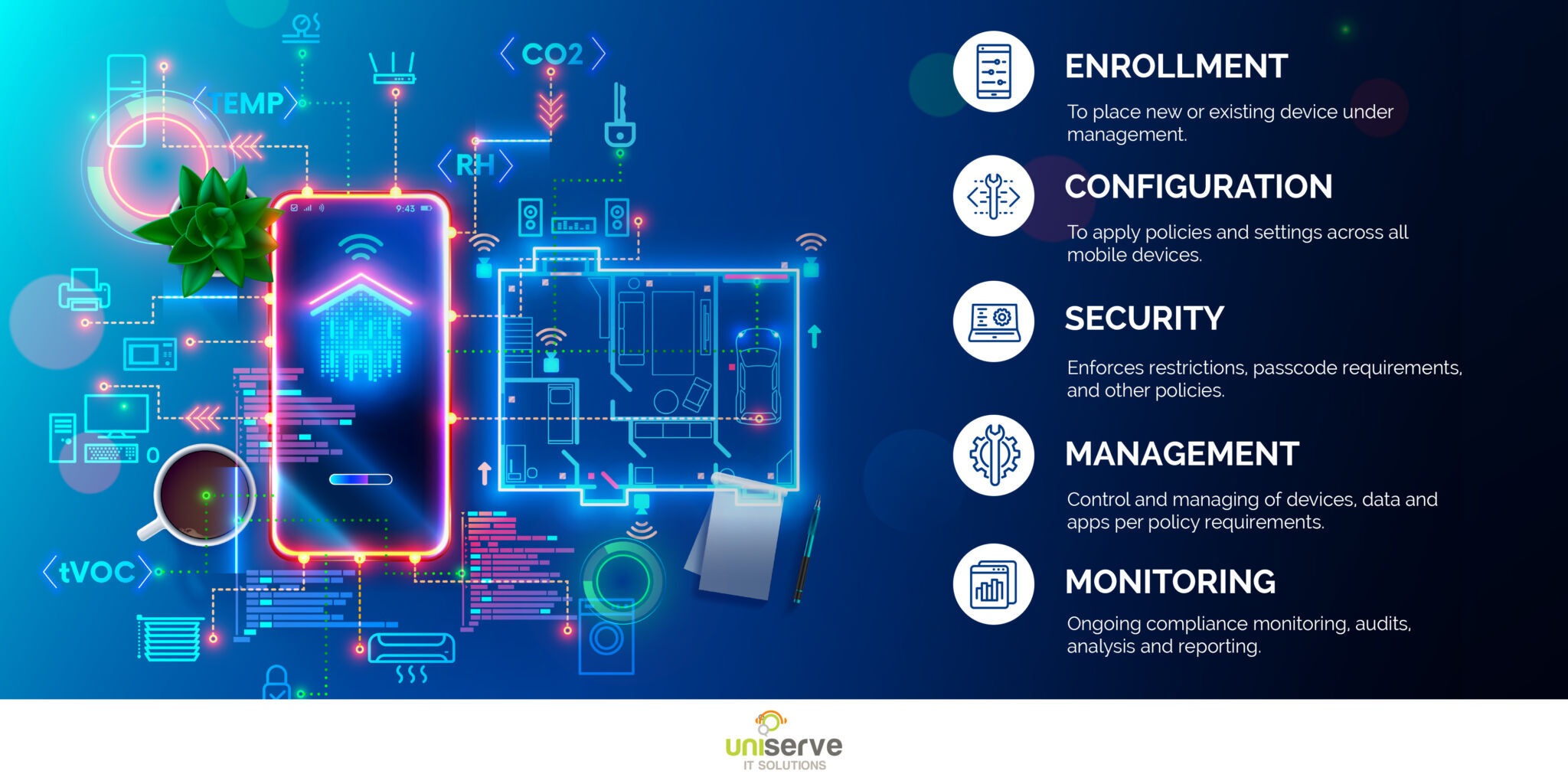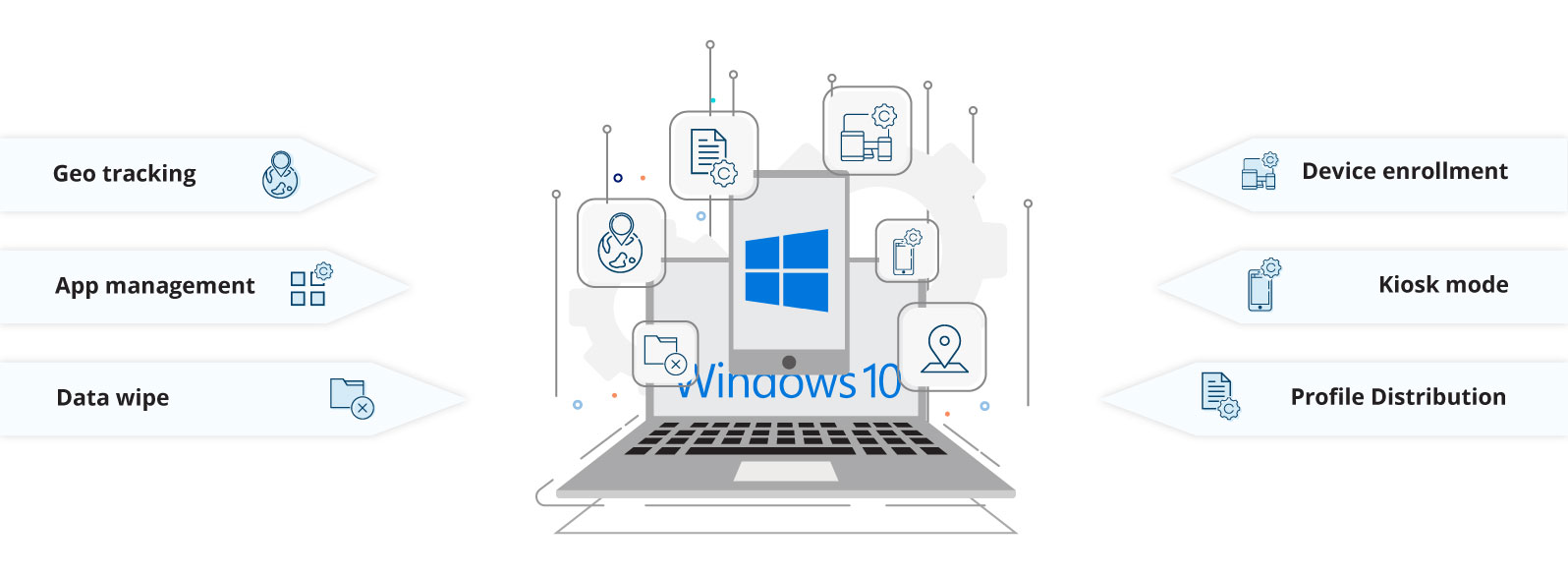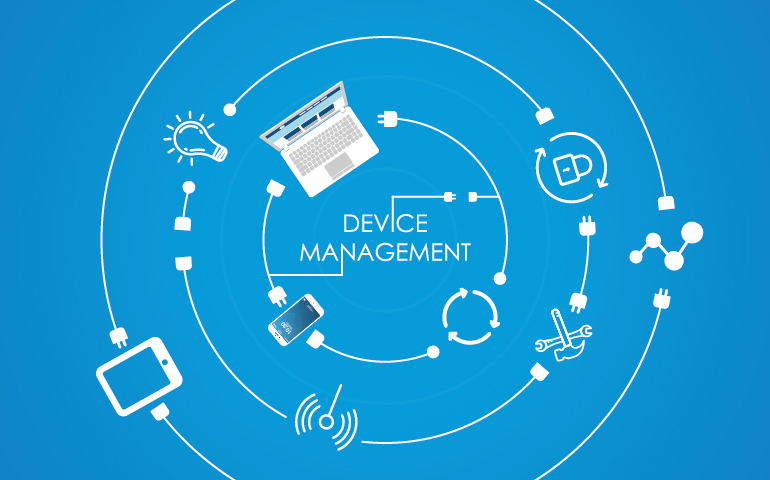The Significance of Device Management and its Role in Modern Technology
Related Articles: The Significance of Device Management and its Role in Modern Technology
Introduction
With great pleasure, we will explore the intriguing topic related to The Significance of Device Management and its Role in Modern Technology. Let’s weave interesting information and offer fresh perspectives to the readers.
Table of Content
The Significance of Device Management and its Role in Modern Technology

In the contemporary technological landscape, the seamless integration of devices into our daily lives has become indispensable. From smartphones and tablets to laptops and smart home appliances, these devices have revolutionized the way we communicate, work, and interact with the world around us. However, managing the diverse ecosystem of devices presents a unique set of challenges. Enter Device Management, a critical aspect of modern technology that ensures the efficient and secure operation of these interconnected systems.
Understanding Device Management
Device Management encompasses a broad range of practices and technologies designed to oversee and control the lifecycle of devices within an organization or personal network. This includes tasks such as:
- Deployment and Configuration: Installing and setting up devices, ensuring they are properly configured and ready for use.
- Security Management: Implementing security measures to protect devices from threats, including malware, unauthorized access, and data breaches.
- Software Updates: Distributing and managing software updates, ensuring devices have the latest security patches and bug fixes.
- Inventory and Tracking: Maintaining a comprehensive inventory of devices, tracking their location and status.
- Remote Management: Controlling and managing devices remotely, allowing for efficient troubleshooting and administration.
- Data Management: Ensuring data security and compliance, including data backup and recovery.
Benefits of Effective Device Management
Implementing robust device management strategies yields numerous benefits for individuals, businesses, and organizations:
- Enhanced Security: Device management solutions provide a centralized platform for implementing security policies, ensuring devices are protected from external threats and internal vulnerabilities. This is particularly crucial in today’s world, where cyberattacks are becoming increasingly sophisticated.
- Increased Efficiency: By automating routine tasks such as software updates and device configuration, device management streamlines operations and frees up IT staff to focus on more strategic initiatives.
- Improved Productivity: Well-managed devices ensure smooth operation and minimal downtime, enabling users to focus on their core tasks without interruptions.
- Cost Savings: Effective device management can help reduce operational costs by optimizing device utilization, minimizing downtime, and extending the lifespan of devices.
- Compliance and Governance: Device management solutions can help organizations comply with industry regulations and data privacy standards, ensuring data security and integrity.
The Role of Device Management in Different Environments
Device management is essential across various sectors, including:
- Businesses: In corporate environments, device management is crucial for ensuring the security and productivity of employees, managing company data, and complying with regulatory requirements.
- Education: Schools and universities rely on device management to manage student devices, enforce internet usage policies, and distribute educational resources.
- Healthcare: Hospitals and clinics utilize device management to secure sensitive patient data, manage medical equipment, and ensure compliance with HIPAA regulations.
- Government: Government agencies utilize device management to protect critical infrastructure, secure sensitive information, and maintain operational efficiency.
The Future of Device Management
The landscape of device management is constantly evolving, driven by advancements in technology and the increasing complexity of device ecosystems. Emerging trends include:
- Artificial Intelligence (AI): AI-powered device management solutions are becoming increasingly sophisticated, automating tasks, identifying potential threats, and providing proactive insights.
- Cloud-Based Solutions: Cloud-based device management platforms offer scalability, flexibility, and cost-effectiveness, enabling organizations to manage devices from anywhere in the world.
- Internet of Things (IoT): As the number of connected devices continues to grow, device management solutions will need to adapt to manage the unique challenges of IoT devices.
- Mobile Device Management (MDM): MDM solutions are crucial for managing mobile devices, ensuring security, compliance, and data protection.
FAQs about Device Management
Q: What are the different types of device management solutions?
A: There are various types of device management solutions, including:
- Mobile Device Management (MDM): Designed specifically for managing mobile devices, such as smartphones and tablets.
- Endpoint Management: Covers a broader range of devices, including laptops, desktops, and servers.
- Unified Endpoint Management (UEM): Combines the features of MDM and endpoint management into a single platform.
- Cloud-Based Device Management: Hosted in the cloud, offering flexibility and scalability.
- On-Premise Device Management: Installed and maintained on-site, providing greater control over data and security.
Q: How can I choose the right device management solution for my needs?
A: When selecting a device management solution, consider the following factors:
- The size and complexity of your organization.
- The types of devices you need to manage.
- Your security requirements.
- Your budget.
- Your technical expertise.
Q: What are the key features of a good device management solution?
A: A robust device management solution should offer the following features:
- Centralized console: A single point of management for all devices.
- Automated tasks: Streamlining operations and reducing manual effort.
- Comprehensive security features: Protecting devices from threats.
- Remote control and management: Enabling efficient troubleshooting and administration.
- Data backup and recovery: Ensuring data integrity and availability.
- Compliance reporting: Providing evidence of compliance with regulations.
Tips for Effective Device Management
- Implement a comprehensive device management strategy: Define clear policies and procedures for managing devices, including security, updates, and user behavior.
- Choose the right device management solution: Select a solution that meets your specific needs and budget.
- Train users on device management policies: Ensure employees understand the importance of security and best practices for device usage.
- Regularly review and update your device management strategy: Adapt your strategy to evolving security threats and technological advancements.
- Monitor device performance and security: Regularly assess device health and identify potential issues.
Conclusion
Device management is a critical aspect of modern technology, ensuring the security, efficiency, and productivity of devices in diverse environments. By implementing robust device management strategies, organizations and individuals can mitigate risks, optimize operations, and maximize the value of their technological investments. As the digital landscape continues to evolve, the importance of effective device management will only grow, shaping the future of technology and our interconnected world.








Closure
Thus, we hope this article has provided valuable insights into The Significance of Device Management and its Role in Modern Technology. We appreciate your attention to our article. See you in our next article!